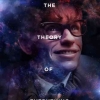1. The difference is important, because traditional theory considers learning as the transfer of information to students only, while constructivist theory assumes that learning at this point has not started, but begins after. learner, who creates personal meaning resulting from knowledge. Behavioral theory is concerned with the visible behavior of the learner, while constructivist theory is concerned with the learner's internal cognitive processes.
2. The role of the teacher in behaviorism is to create a learning environment to encourage students to learn the desired behavior, whereas in constructivism, the learning environment is created to allow students to construct their own knowledge.
3. Evaluation procedures differ from theory to theory. While some teaching theories focus on standardized reference tests, others focus on oral reference tests, or use experiments or open-ended questions.
- Definition and Explanation of Humanistic Theory
Humanistic education or (individual learning) is education that depends on the achievements of humanistic psychology, and Abraham Maslow and Carl Roger are the best known in this field. The keys to an effective teacher are empathy, concern for students and honesty. He has also edited books on human education in Personal String Studies which also includes his books The Freedom to Learn Learn to Feel and Feel to Learn Human Education for All Humanity by Harold C. Leon J. R, in the 1970s, "humanistic education" became less common after conservative religious groups attacked the writings of Harold Lyons, calling him out and approaching him with secular studies and accusing his writing of being anti-Christian. This curriculum is to study humans in terms of intelligence, sense of life, social abilities, intelligence technical and practical skills, all of which are important pillars of the process of human growth and development. The goal of all this is to increase self-esteem in children. Improve their ability to set appropriate goals and strive for them, and their development to achieve autonomy full.
- History of The Theory
Human education goes back to the ancient philosophers of the Renaissance, who appreciated the importance of studying the humanities; Grammar, rhetoric, history, poetry and moral philosophy, which were originally built on ancient educational models, depended on the evolution of their humanistic impulse towards Scottish education when the Education Act 1496 was enacted.
- Field Studies on Education
David Asby and Flora Roebuck created the largest field of study ever in 42 states and 7 countries From the 1970s through the 1980s, funded by the National Institute for the Study of Mental Health in 12 year olds focusing on motivating factors creativity and achievement as well as improve thinking and interaction When students and factors that reduce violence among students and ultimately satisfaction with the educational process of teachers and students, the results of this study confirm Carl Roger's theory, which states that teachers are emotional and who value and value students and they are also examples of honesty in the classroom.
In 2010 Professors Jeffrey Cornelius White and Adam Herbo made a comprehensive analysis of personal education, including their analysis of the best studies of human education since 1984, Tosh, Leon and Rogers published a book entitled "Being a Successful Educator - Personally Focused Philosophy and Psychology Education." In 2013, another book "The Conversations of Carl Roger and Harold Lyon" includes the most recent unpublished writings of Roger's work, and documents the research results of four independent studies specializing in this field, containing the largest amount of information gathered so far in this field.
- Educational Environment







